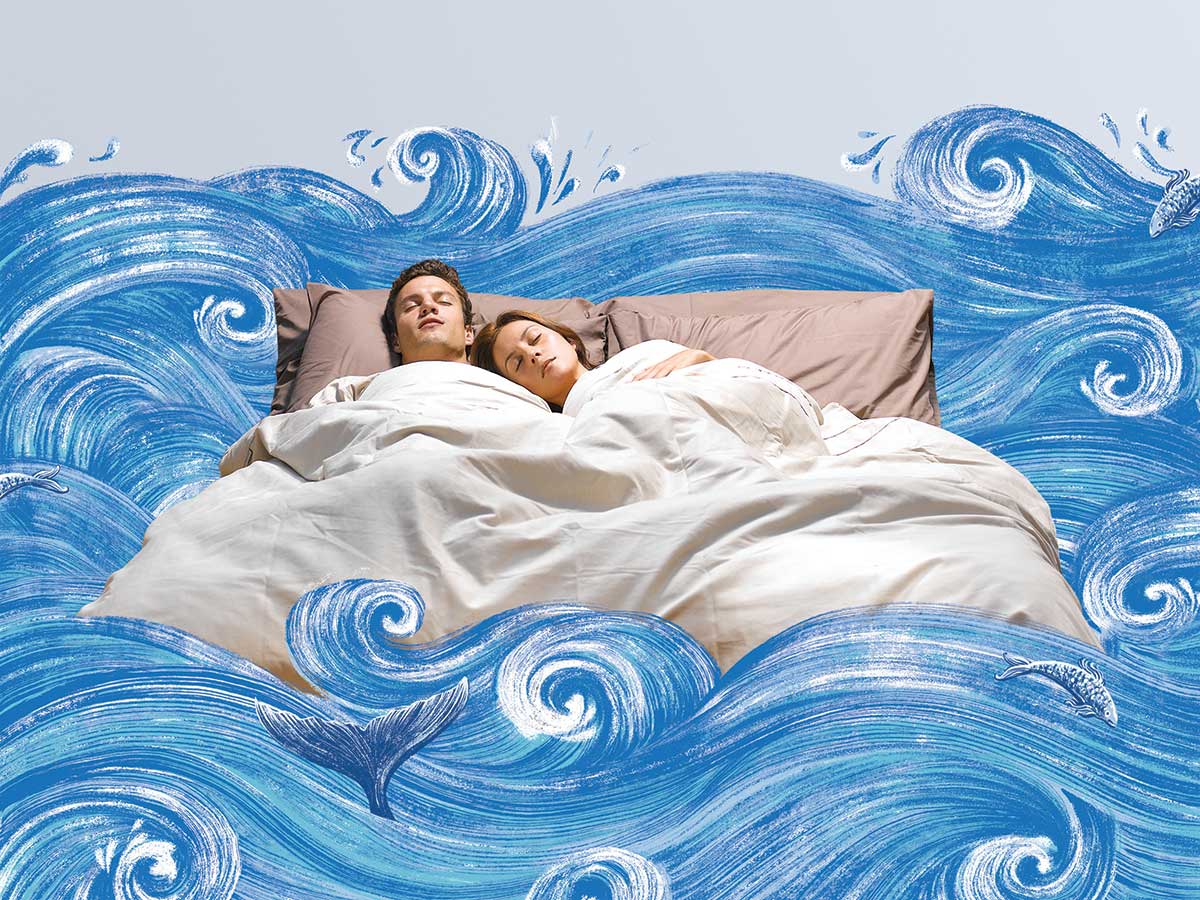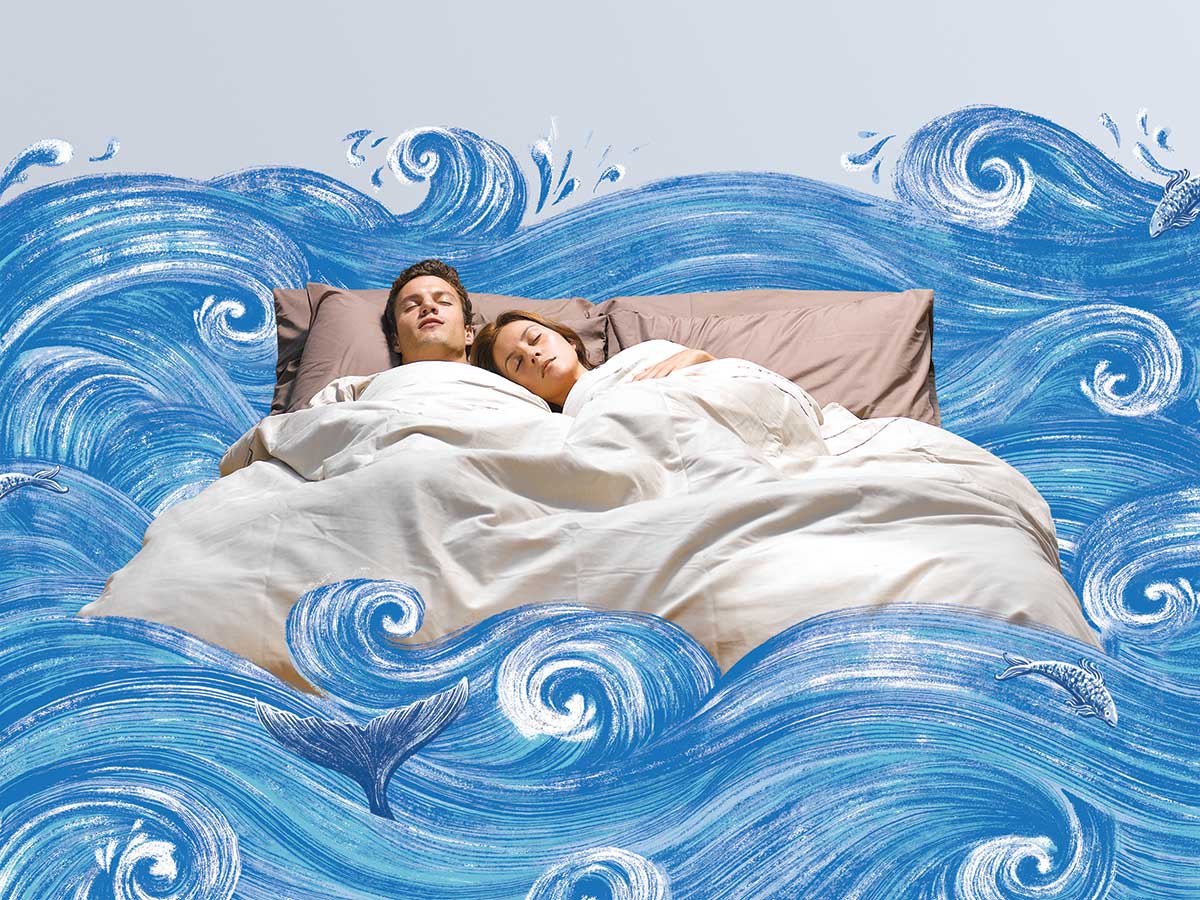
The waterbed is making a comeback (really)
 The water’s temperature in an Afloat waterbed can be adjusted for optimal sleeping (Illustration by Chloe Cushman/Photo by iStock)
The water’s temperature in an Afloat waterbed can be adjusted for optimal sleeping (Illustration by Chloe Cushman/Photo by iStock)
THE GAMBLE:
To many, waterbeds are a symbol of 1970s louche-ness. At their peak in the late 1980s, they accounted for 22 per cent of the U.S. mattress market, before collapsing in the early 1990s (blame Bush-era chasteness, a fear of leaks or an aversion to mid-sleep motion sickness). But 50 years later, their original designer, Charlie Hall, believes they’re ready for a comeback. If he can capture even a small portion of today’s $27-billion mattress market, he could end up with a very buoyant bank account.
THE PLAN:
Hall claims his new waterbed series, Afloat, addresses its predecessor’s problems. A stretchy knit top replaces the old diaper-like plastic, a vinyl lining eliminates worries about leaks, and separate water bladders (an optional feature) prevent a sleeper from being launched into the air when their partner gets in bed. Whereas original waterbeds—with names like the Pleasure Pit—appealed to hedonistic bachelors, the new pitch is health: they supposedly promote better circulation and help with back pain; and the water’s temperature can be adjusted for optimal sleeping. They’re pricey, from US$2,000 to $3,400, but Hall thinks boomers will be attracted by nostalgia (“they remember the fun”), while millennials will be drawn in by the novelty (“most of them have never experienced one”). “Hall is going about this very smartly,” says Paul Drysdale, a Brampton, Ont. furniture retailer who’s sold waterbeds since 1980. “His new bed is positioned for a much broader audience.”
THE RESULT:
Exact financials are private, but Hall says the results are promising. In spring 2018, he started retailing at three stores in south Florida, where one of Afloat’s co-founders operates City Furniture, a massive American home-furnishing chain. After three months, retail expanded to nine stores, with imminent plans to expand across the U.S. and eventually make waves in Canada.